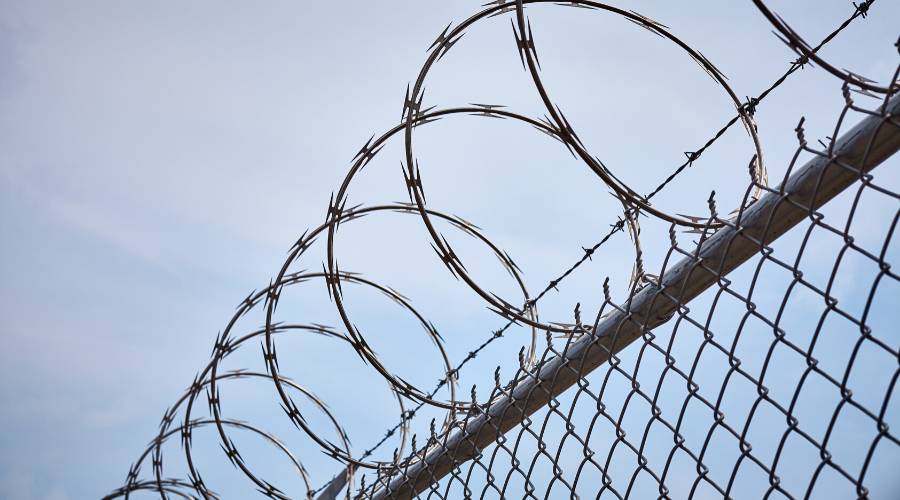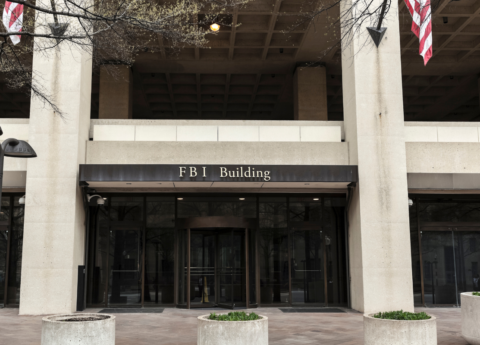Today the Senate Judiciary committee will hear a House-passed bill that would reduce incarceration – especially important as the COVID-19 pandemic threatens to make Kentucky’s current jail overcrowding even more harmful. House Bill 424 (HB 424), sponsored by Representative Massey, would increase the threshold at which stealing something of value becomes a felony from the current level of $500 to $1,000 – a change that could significantly reduce the number of people held in our overcrowded county jails and the corresponding costs to individuals, their families, and our correctional system.
Kentucky’s current felony theft threshold level has not been adjusted to account for inflation, and is currently lower than the threshold in most states, resulting in more individuals being held in Kentucky jails and higher costs for the state and for counties.
Raising the threshold would result in fewer people being detained, shorter stays in jail, and over time could help to slow growth in incarceration in Kentucky. In the context of the COVID-19 pandemic, it is extremely important to stem the tide of incarceration and prevent similar public health emergencies in the future because people who are jailed in overcrowded facilities are unable to follow guidelines related to separation and hygiene.
Bill proposes to raise felony theft threshold
Under current law, if an individual steals an item valued at $500 (roughly the cost of a cell phone) they can be charged with a Class D felony, which carries a potential sentence of 1 to 5 years, to be served in a local jail. Theft in an amount below $500 is a misdemeanor, which carries a potential sentence of up to a year in jail. HB 424 proposes to make theft under $1,000 a misdemeanor. The bill also provides that if a person is convicted of stealing items valued at between $501 and $999 on 3 different occasions within a 5-year period, the 3rd offense would be a Class D felony rather than a misdemeanor.
HB 424 would also increase the threshold for several fraud-related crimes, some of which currently have amounts as low as $100 for the offense to be a felony, to $1,000 with the same exception described above for 3 offenses within a 5-year period.
How Kentucky compares to other states
The median felony threshold among states is $1,000, while Kentucky’s threshold has been stuck at $500 for over a decade. Just four other states have a felony theft threshold that is $500 or less, and in two states, Wisconsin and Texas, the threshold is as high as $2,500. Raising the felony theft threshold to $1,000 would put Kentucky in line with most other states. Kentucky’s neighbor states Ohio, Tennessee and West Virginia all have a $1,000 threshold, and Virginia’s will go up to $1,000 this summer.
Positive impacts for individuals, families, counties and the state
There are numerous positive impacts that would result from HB 424 being passed:
- Fewer people would have felony convictions and experience the resulting cascade of collateral consequences associated with a felony record — including reduced economic security and health.
- Fewer people would be incarcerated, reducing jail overcrowding and the cost to counties and the state. In 2016, 52% of Class D felony theft cases were for amounts of less than $1,000.
- HB 424 could reduce jail crowding in a couple of ways – both pretrial and after sentencing. Most individuals charged with misdemeanor theft rather than felony theft would likely be released pretrial through administrative release without having to afford money bail to get out of jail. In addition, those charged with misdemeanor theft serve less time than those charged with felony theft over time due to the comparative length of the sentence. Many of our county jails are severely overcrowded, which results in poor quality of life for incarcerated individuals including unsafe conditions that could facilitate the spread of COVID-19.
- The overall decrease in the time individuals are incarcerated should financially benefit both counties and the state. Counties pay the costs of pretrial incarceration, which can drag on for months in felony cases, while the state only begins paying once an individual is sentenced with a felony conviction. Since individuals charged with a misdemeanor are typically not detained pretrial, and since sentences are usually shorter for misdemeanors (for which counties are also on the hook), counties would save money overall. Likewise, if the offense is a misdemeanor rather than a felony, the state would not be responsible for payments after sentencing occurs. These savings can be achieved without compromising public safety, as research shows that when states increase their felony theft thresholds, they have not seen increases in crime.
Increasing the felony threshold with HB 424 is a commonsense change that would move us one step closer to having a justice system that is fairer while providing some relief for our overcrowded jails.




